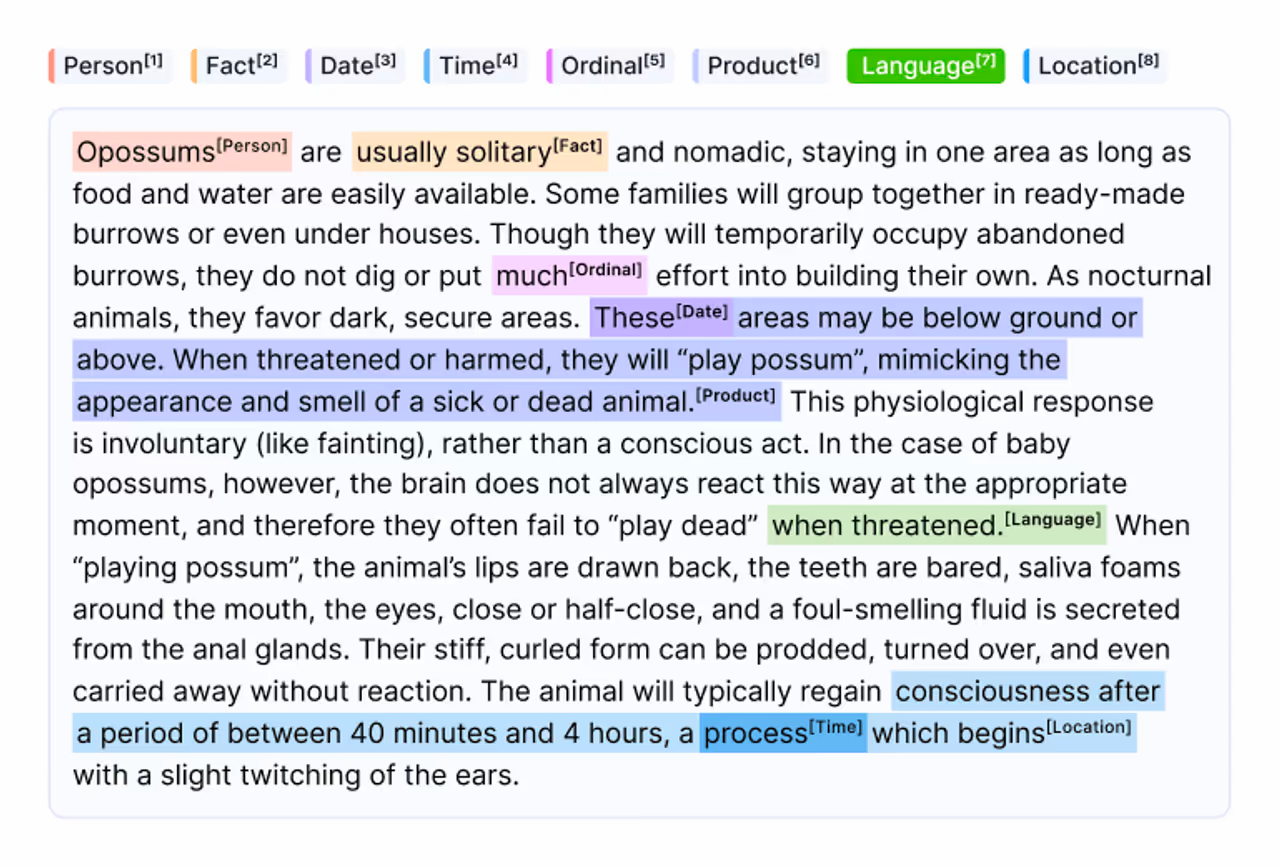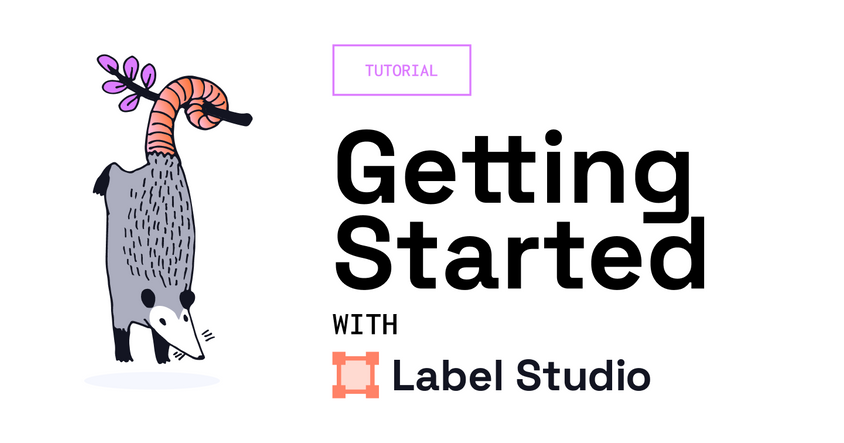NLP and Text Data Labeling for Machine Learning & AI
Get started with Label Studio, the most popular open source data labeling platform for any data type. Label Studio supports a variety of use cases for natural language processing (NLP) and text data labeling. Install Label Studio, connect your data, and configure your labeling UI with a pre-built template to quickly start labeling.

Use Cases for NLP Data Labeling
Question Answering
Pair questions with their corresponding accurate answers. This enables AI systems to understand and respond to natural language questions with contextually relevant information. Applications encompass virtual assistants, customer support automation, and information retrieval.
Text Classification
Categorize text content into predefined classes or labels, facilitating automated organization and routing of textual data. This finds utility in email filtering, content recommendation systems, and news categorization, enhancing user experiences by delivering relevant information.
Sentiment Analysis
Label text data into positive, negative, neutral or other categories, unveiling the emotional tone of the text. This aids in gauging public opinion, brand monitoring, and market research, empowering businesses to make data-driven decisions based on customer sentiments.
Named Entity Recognition
Annotate text to identify and classify named entities such as names, dates, locations, and more. This enables information extraction, search refinement, and data structuring. Applications range from information retrieval to resume screening and legal document analysis.
Taxonomy
Create structured taxonomies by labeling text to define hierarchical relationships between concepts and categories. This assists in content organization, information retrieval, and navigation in various domains such as e-commerce, content management systems, and knowledge bases.
Relation Extraction
Label text to extract and classify relationships between entities, uncovering connections within unstructured data. This supports knowledge graph construction, biomedical research, and news analysis, revealing intricate connections for advanced insights.
Text Summarization
Annotate text for summarization models to generate concise and coherent summaries of longer texts. This aids in information extraction, document summarization, and content generation, enhancing content consumption and comprehension.
Machine Translation
Translate text from one language to another through labeled parallel datasets, enabling automated language translation. This is pivotal for cross-cultural communication, international content distribution, and multilingual customer support, fostering global accessibility.
More Resources for NLP Data Labeling
View All Articles-

Data Labeling with GPT-4 in Label Studio: ML Backend Integration
Learn how to automate labeling tasks using GPT-4 with the Label Studio Machine Learning backend.

Jimmy Whitaker
Data Scientist in Residence at HumanSignal
-

Zero to One: Getting Started with Label Studio
Brand new to Label Studio? We’ve created a jam-packed new tutorial with the most important information to get you up and running.

Erin Mikail Staples
Senior Developer Community Advocate
-

Introduction to Data Labeling in Hugging Face Spaces using Label Studio
This tutorial is designed to get you started with data annotation using Label Studio inside of Hugging Face Spaces.

Erin Mikail Staples
Senior Developer Community Advocate

Chris Hoge
Head of Community